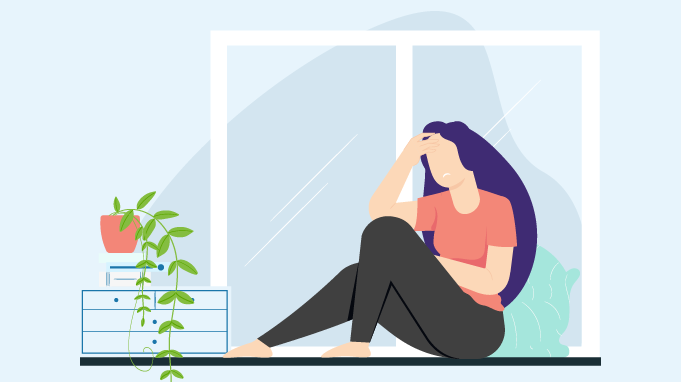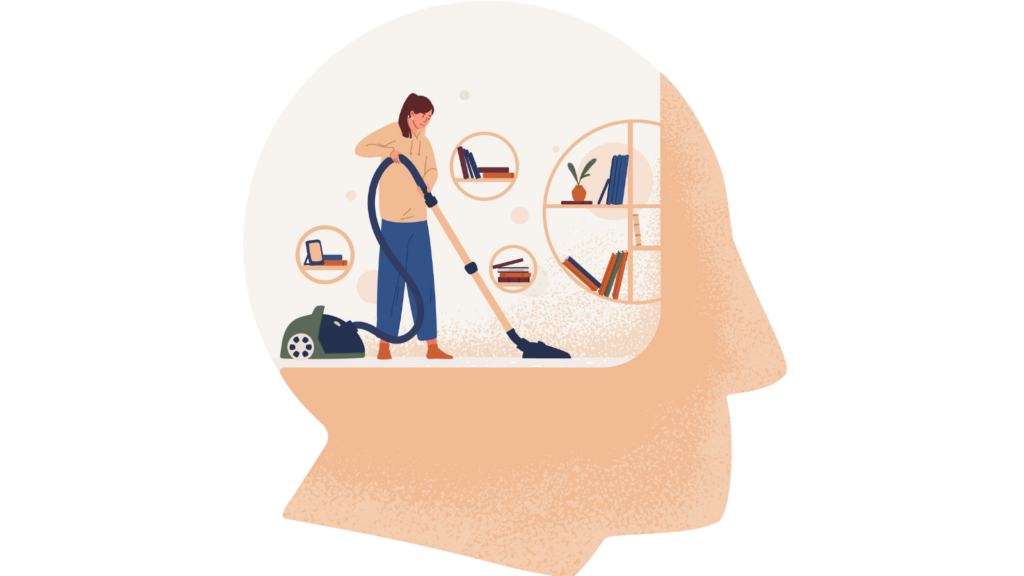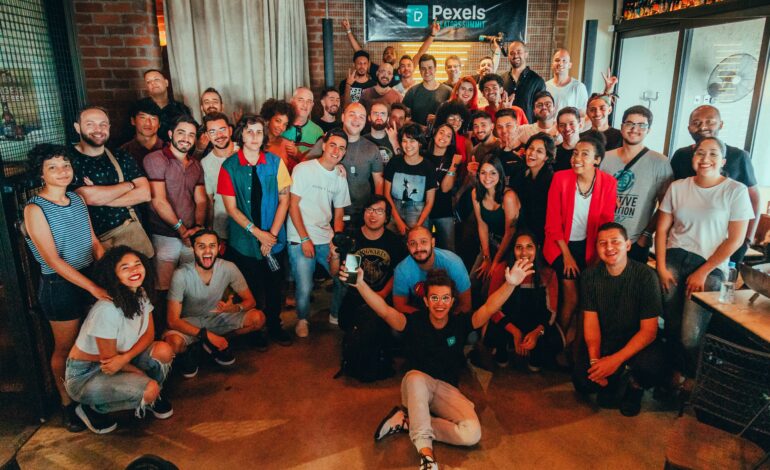
Coping with change and uncertainty is a crucial aspect of maintaining good mental health. When faced with an uncertain situation, it’s easy to feel like you’re being taken advantage of, or that other people are taking advantage of you. It’s important to remind yourself that uncertainty is just part of life, and everyone has to deal with it in their own way.
It’s also important not to get stuck in your head about what could happen if things don’t work out for the best—it can be tempting to imagine all the ways you might be disappointed, but this kind of thinking tends to lead us down a path toward depression and anxiety. Instead, try focusing on what’s working out so far, even if it’s not exactly what you hoped for.
Here are some strategies that can help individuals embrace change and navigate uncertain situations:
Practice Mindfulness and Acceptance
Your mind is a powerful tool. It can help you accomplish great things, but it can also cause you a lot of stress and anxiety. If you want to reduce your stress, you need to learn how to control your thoughts and emotions.
Mindfulness involves being present in the moment without judgment. It’s a process of paying attention to your thoughts, feelings, and physical sensations without judging them as good or bad. When you’re able to be mindful, you’ll notice when your mind starts worrying about something and then bring it back into focus on what’s happening right now.
Acceptance is another important skill for managing stress and anxiety because it helps you accept that change is a natural part of life. If something unexpected happens—like losing your job or finding out that someone close to you has died—acceptance allows you to understand that things won’t always stay the same for us as humans or for our relationships with others; we need to learn how adapt in order for these changes not affect us negatively emotionally.
Maintain a Routine
A routine can be a powerful tool for maintaining your mental health. While change can disrupt routines, establishing a new one can provide a sense of stability and predictability. This can be especially important during periods of transition.

Routines help you to focus on the present moment, instead of worrying about the future or dwelling on past events. They also have the added benefit of helping you to avoid procrastination—you know what needs to get done, so there’s no reason to put it off! It’s important that your routine is tailored to your needs and preferences. If you’re struggling with PTSD or depression, it might not be helpful to go out running every day at 6am! The point is to make sure that whatever you do, be sure it gets done consistently so that it becomes part of your daily life.
Focus on What You Can Control
Identify the aspects of a situation that you have control over, and direct your energy towards those. This can help you feel more empowered and capable. If you’re feeling overwhelmed, it’s important to remember that not every aspect of your life is within your control. You may not be able to change the fact that your favorite coffee shop closed down or that your boss is a jerk, but there are things you can do to help yourself feel more empowered in those situations.
It’s easy to get caught up in thinking about all the things we can’t change – but when you spend time focusing on what you can control and taking action to take care of those things, it’s like magic: you’ll start feeling more empowered and confident!
Journaling and Reflection
Journaling is a great way to process what’s happening in your life. Writing down your thoughts and feelings can provide clarity and insight. It’s a way to process what’s happening and gain a deeper understanding of your reactions. I’ll admit, sometimes it can be hard to write everything down, but it really helps to get it out of my head and onto paper. That way, I don’t have to worry about forgetting something important or getting overwhelmed by all the information that’s swirling around in there!
Engage in Self-Care
It’s easy to get caught up in the day-to-day of work, school, and home life. But when we don’t take care of ourselves—physically, emotionally, and mentally—we can start feeling overwhelmed and exhausted. That’s why it’s so important to make self-care a priority.
The best way to do this is by creating a self-care routine that works for you. It could be as simple as taking a walk after dinner every night or getting on the treadmill at the gym before work. Or maybe it means carving out time in your schedule to attend yoga class or meditate each week. Whatever it is that helps you feel relaxed and replenished is what matters most! Remember, if you don’t take care of yourself, no one else will either.
Engage in Creative Outlets
Expressing yourself through creative activities like art, writing, or music can be a powerful way to process emotions and find meaning in change. Creative outlets allow you to express your feelings, explore new ideas and thoughts, and appreciate the world around you in ways that aren’t always possible when you’re stuck in a rut. When we’re in survival mode, it’s easy to forget that the world is an amazing place with so much beauty and wonder waiting for us to discover it.
If you’re feeling stuck or frustrated with your current situation, try looking for ways to express yourself creatively over the next few days. Even if it feels silly at first or like you’re not very good at it—that’s okay! The point isn’t about being perfect; it’s about allowing yourself to explore new things without judgment or fear of failure.
Stay Informed, but Limit Exposure to Social Media
Social media is a great way to stay informed about the things that are going on in the world around you. It can also be a great tool for connecting with old friends or making new ones. However, if your feed is filled with political rants or pictures of your friend’s kids, it may not be as healthy for you as you think!
The constant stream of information from social media can be overwhelming and lead to anxiety. It’s important to set boundaries so that you only read posts that are relevant to you and your interests. In addition, make sure that the sources of information used are reputable and credible so that they do not cause unnecessary stress or anxiety.
Seek Support and Connection

If you’re feeling alone, it can be helpful to connect with others who are going through a similar experience. Tell your friends and family how you’re feeling, and ask them for their support. They may be able to offer encouragement or give you advice about how to handle your situation.
It’s also important to know that if you don’t feel comfortable talking about these issues with friends or family members, there are other resources available. A therapist can help you work through your feelings and develop strategies for coping with them.
Change is hard, but it’s also exciting. You can do it! You’re not alone in your feelings of anxiety and uncertainty—you’re just feeling them more intensely than others. That’s okay! The important thing is that you acknowledge what you’re feeling and let yourself feel those emotions, rather than trying to ignore them or push them down. Be patient with yourself and acknowledge that it’s okay to ask for help when needed. Each person’s journey is unique, so find the coping strategies that work best for you.
RUCHI RATHOR Founder & CEO
Payomatix Technologies Pvt. Ltd.
FOUNDER AND INVESTOR | PAYMENTS PROCESSING EXPERT | MERCHANT ACCOUNT SOLUTIONS | WHITE LABELLED PAYMENT GATEWAY | Dreamer, Creator, Achiever, Constantly Evolving
Website Ruchi Rathor: https://ruchirathor.com
Website Healing Heart https://thehealingheart.me/
Instagram https://www.instagram.com/_ruchirathor_/
LinkedIn https://www.linkedin.com/in/ruchirathor12/
Facebook https://www.facebook.com/ruchi.rathor.magnificient
Tumblr https://www.tumblr.com/blog/ruchirathor-thehealingheart
Medium https://medium.com/@ruchirathor_23436









